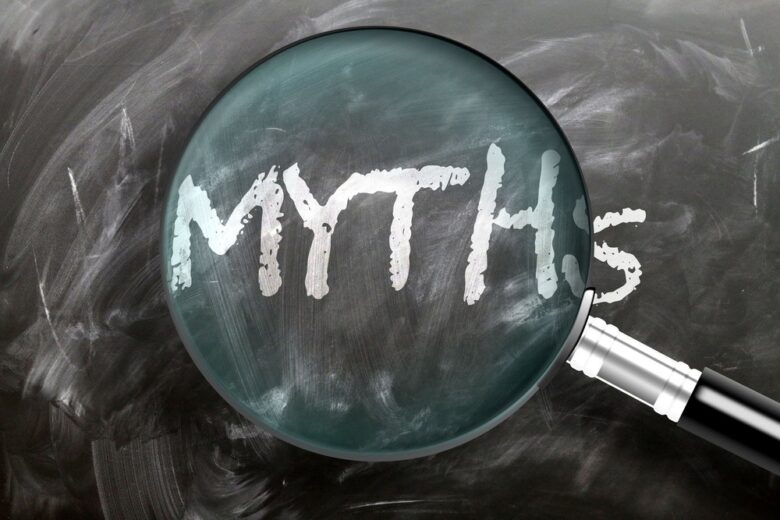Buying insurance is an important way to protect your finances and manage risks. Many people don’t understand how insurance works or what it can do for them, even though it is very important. In this article, we debunk ten common insurance myths and show you the truth behind them. This way you can make an informed choice about your coverage.
Myth 1: “Insurance is a Waste of Money”
Many people think insurance is a waste of money because they may never need it. This myth ignores the main reasons people buy insurance: to protect their finances and give them peace of mind. Suppose you are involved in a car accident or an act of God damages your home. Without insurance, fixing things and paying medical bills can be very expensive. Insurance is like a safety net; it protects you from the unexpected and can save you a lot of money if something bad happens.
Myth 2: “All Insurance Policies Are the Same”
There are different types of insurance. Each type of insurance is designed to cover different risks and needs. An example is health insurance that covers medical expenses, while car insurance covers problems with your car. The policies for each group can differ significantly in what they do and do not cover, and the benefits they provide. It is important that you read and understand the details of any policy you are considering to ensure it meets your needs.
Myths 3: “If You’re Young and Healthy, You Don’t Need Insurance”
Being young and healthy does not protect you from accidents or health problems. Young people may not be at the same risk as older people, but that doesn’t mean they can’t get hurt or sick. Buying insurance when you’re young can even save you money and help you in the long run. Having health insurance is important because it can cover the costs of preventive care and early treatment of potential health problems.
Fact 4: “Home Insurance Covers All Types of Damage”
Home insurance is designed to protect you against a variety of risks, but it doesn’t cover them all. Standard homeowners insurance policies typically exclude damage from floods, earthquakes and certain types of maintenance issues. To adequately protect your home, you may need additional coverage or a separate policy for these specific risks. It’s important to understand what your home insurance covers and consider additional options if necessary.
Myth 5: “Car Insurance Covers All Drivers”
Auto insurance typically covers the policyholder and any approved driver. But if someone else drives your car, your benefits may be different. Generally speaking, if someone not on your policy is involved in an accident while you are driving the car, it could affect your coverage. You should notify your insurance company of all your regular drivers to ensure they are properly covered.
Myth 6: “Life Insurance is Only for Seniors”
People of all ages can benefit from life insurance, but it is often associated with seniors. Life insurance can also help young people who have dependents or significant financial responsibilities. Buying insurance early can help you lock in lower premiums and provide your loved ones with financial security in the event of an untimely death. You don’t have to be old to get life insurance. Anyone who wants to protect their family financially can get it.
Myth 7: “Health Insurance Covers All Medical Costs”
Health insurance does not cover all medical costs, but it does help pay for a large portion of them. There may be exceptions, such as some elective surgeries or treatments that are being tested. You may also have to pay with your own money for things like copays, deductibles, and coinsurance. To better manage your medical costs, it’s important to understand what your insurance doesn’t cover and how much it does.
Myth 8: “Renters Insurance is Not Necessary”
Renters often forget about renters insurance, but it’s a great way to protect yourself. It protects your belongings in the event of theft, fire or other events covered by your policy. You are also insured if someone is injured during your rental. If you don’t have renters insurance, you could incur significant costs to repair lost or damaged items and deal with potential liability claims.
Myth 9: “You Can’t Change Your Insurance Coverage”
Many people believe that once they choose an insurance plan, they can’t change their mind. Even better, you can change your services at any time. Insurance plans are flexible and can be changed based on your changing needs. This is true whether you need to increase your coverage limits, add a new type of protection, or change insurance companies. To ensure your coverage continues to meet your needs, review and update it regularly.
Myth 10: “Insurance Costs Are Always the Same”
Insurance rates are constantly changing. They may change based on a number of factors, such as your personal circumstances, your previous claims and market conditions. For example, if you have a good driving record, your auto insurance rates may decrease, but if you have a history of claims, your auto insurance rates may increase. You can get a better handle on your premiums if you review your policy regularly and shop around for better rates.
Conclusion:
Insurance is a complex subject and many misconceptions exist that can lead to confusion and inadequate coverage. By breaking down these common misconceptions, we hope to clarify things for you and help you make informed choices for your insurance needs. Remember, knowing your policy and keeping it up to date is essential to ensuring you and your assets are well protected.
FAQs:
1. If I buy a new car, can I change my car insurance coverage?
Yes, you can tailor your car insurance coverage to the needs of your new car. Talk to your insurance company about making the changes you need.
2. What should I do if I think my homeowners insurance does not cover a specific risk?
Please check your policy and contact your insurer to discuss adding additional cover or a separate policy for the relevant risks.
3. I don’t have a lot of stuff, so is it worth it to get renters insurance?
No, renters insurance not only protects your property, it also protects you from lawsuits. A small purchase that gives you peace of mind.
4. How often should I check my insurance?
It’s a good idea to review your insurance plan once a year, or whenever a major life event occurs (such as when you move or get a new job).
5. Can I save on insurance costs by combining my policies?
Of course, you can get a discount if you buy more than one policy from the same company, such as car and home insurance.




